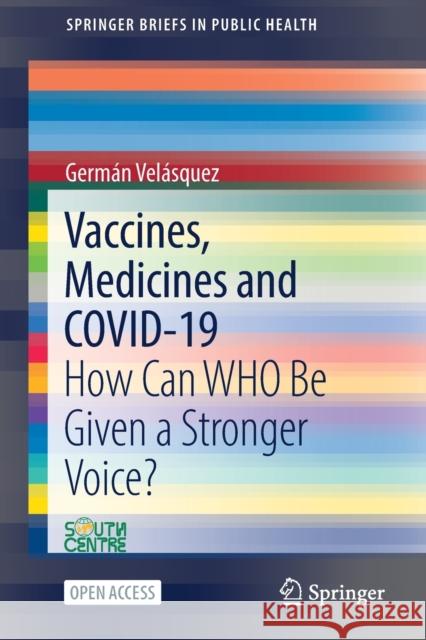Vaccines, Medicines and Covid-19: How Can Who Be Given a Stronger Voice? » książka
topmenu
Vaccines, Medicines and Covid-19: How Can Who Be Given a Stronger Voice?
ISBN-13: 9783030891244 / Angielski / Miękka / 2021 / 136 str.
Vaccines, Medicines and Covid-19: How Can Who Be Given a Stronger Voice?
ISBN-13: 9783030891244 / Angielski / Miękka / 2021 / 136 str.
cena 121,01
(netto: 115,25 VAT: 5%)
Najniższa cena z 30 dni: 115,63
(netto: 115,25 VAT: 5%)
Najniższa cena z 30 dni: 115,63
Termin realizacji zamówienia:
ok. 22 dni roboczych
Bez gwarancji dostawy przed świętami
ok. 22 dni roboczych
Bez gwarancji dostawy przed świętami
Darmowa dostawa!
This open access book is a collection of research papers on COVID-19 by Germán Velásquez from 2020 and early 2021 that help to answer the question: How can an agency like the World Health Organization (WHO) be given a stronger voice to exercise authority and leadership?
In this single volume, the chapters present the progress of thinking and debate — particularly in relation to drugs and vaccines — that would enable a response to the COVID-19 pandemic or to subsequent crises that may arise. Among the topics covered:
- COVID-19 Vaccines: Between Ethics, Health and Economics
- Medicines and Intellectual Property: 10 Years of the WHO Global Strategy
- Re-thinking Global and Local Manufacturing of Medical Products After COVID-19
- Rethinking R&D for Pharmaceutical Products After the Novel Coronavirus COVID-19 Shock
- Intellectual Property and Access to Medicines and Vaccines
- The World Health Organization Reforms in the Time of COVID-19
Vaccines, Medicines and COVID-19: How Can WHO Be Given a Stronger Voice? is essential reading for negotiators from the 194 member countries of the World Health Organization (WHO); World Trade Organization (WTO) and World Intellectual Property Organization (WIPO) staff participating in these negotiations; academics and students of public health, medicine, health sciences, law, sociology and political science; and intergovernmental organizations and non-governmental organizations that follow the issue of access to treatments and vaccines for COVID-19.











